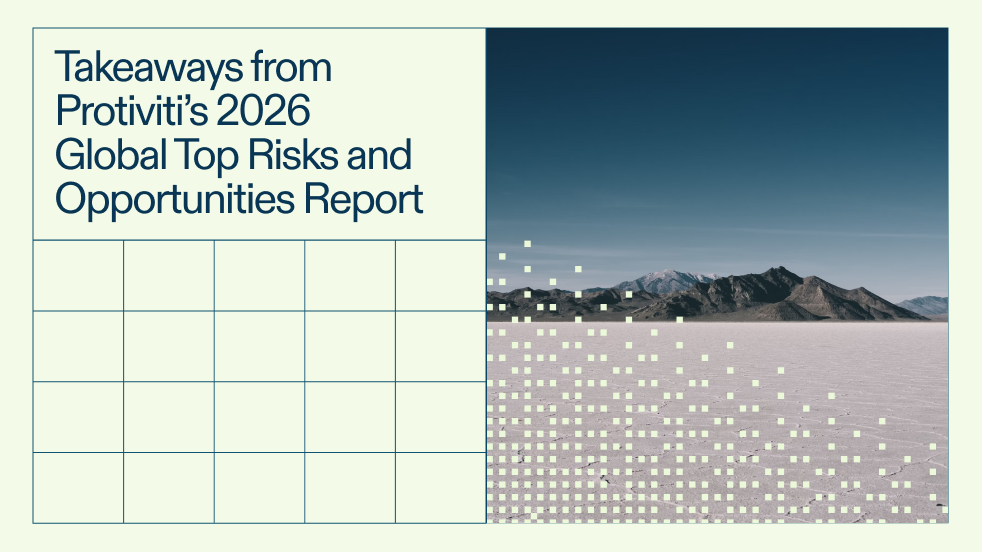
January 11, 2024 • 7 min read
The Four Agreements: Getting Ready for the New Year

David Hill
Ever since the new year began with the month named after the two-faced god Janus, it’s been customary to look back while planning forward. This time of year always reminds me of a particular bit of wisdom that is especially apt for internal auditors and audit functions.
Don Miguel Ruiz’s book “The Four Agreements: A Practical Guide to Personal Freedom” is more than 25 years old. Its central ideas are much older still, originating in the first millennium CE with the Toltec culture, a precursor to the Aztecs. It is very much in the same vein as this quote from the 13th-century poet and mystic Rumi: “Yesterday I was clever, so I wanted to change the world. Today I am wise, so I am changing myself.”
We can’t always shape things around us to ease our trials and tribulations, but we can adopt a different attitude towards them.
Domestication: How We Forget Simple Pleasures and Become Our Own Worst Critics
Ruiz’s thesis is a simple one and something we can readily relate to. As children, we live in the present – we happily play, explore, learn, and love without dwelling on the consequences. Of course, this is only possible when we have no responsibilities and are cared for in a nurturing environment. Children don’t worry about tomorrow because they don’t need to, and this gives them the freedom – and the permission – to be their authentic selves.
However, over time we lose this frame of mind. We become domesticated. We learn the roles, behaviours, and values expected of us. We unconsciously enter into thousands of transactional agreements based on rewards and punishments. This becomes our belief system by which we judge everything, including ourselves, and we no longer feel free to be who we are. Instead, we are full of inner turmoil, second-guessing everything we do by how others see us and by the values we have adopted.
What Ruiz offers us is hope and a chance to change ourselves by replacing the agreements we have made with four new ones. How does this relate to internal audit? As it turns out, we can align these agreements with four of the five ethical principles of the new Global Internal Audit Standards (as indicated in brackets).
Agreement 1: Be impeccable with your word (Integrity)
We create reality with the words we speak, both to ourselves and to others. We should therefore refrain from blame, judgment, and negativity. Instead, we should always speak the truth. As auditors, we do this by ensuring we are relevant, accurate, reliable, and timely. We must be clear and courageous in our communication, especially when sharing our purpose, objectives, approach, results, and recommendations. Our reputation is fundamental to our authority and to the value we deliver.
Agreement 2: Don’t take anything personally (Objectivity)
We tend to be self-obsessed and understand things in terms of how they impact us, causing us stress. We need to step back. When we experience negativity or pushback from stakeholders, it is because they are seeing things through their systems of belief. They don’t understand our world. We can communicate far more effectively when we depersonalise a situation. Risks can only be understood in the context of objectives and actions to pursue them. Our analysis must be free from bias. We fail to fulfil our purpose when we present an audit-centric universe.
Agreement 3: Don’t make assumptions (Due diligence)
Assumptions are shortcuts to a conclusion that bypasses critical analysis and leads to confusion, error, and disappointment. The Standards prompt us to follow a systematic and disciplined approach. We should avoid familiarity with a situation being an excuse for a lack of rigour.
Agreement 4: Always do your best (Competency)
We should remember that what is our best depends on the situation. We should never feel guilty, regretful, or self-critical when our performance is not perfect if we have laboured with honest intentions. Auditors face challenging tasks requiring sound reasoning and meticulous attention to detail. We should approach our work with a growth mindset, continuously seeking improvement and learning from our experiences. Doing our best includes maintaining professional competence, staying updated with industry standards, and forever adapting to changing circumstances.
Out with the Old, in with the New
I believe that if auditors incorporate these principles into their everyday approach, fostering a culture of integrity, effective communication, collaboration, and continuous improvement, organisations can expect to see a truly positive impact. The principles are core to the credibility and value of internal auditing and will promote greater trust and a more harmonious workplace.
Through these four agreements, Ruiz offers us a path to freedom and happiness in our personal lives as well as increased satisfaction and success as professionals. He offers these tips for making the transition:
- Be aware of harmful agreements that are self-critical and destructive. Mindfulness is the first step towards a healthier mindset. We should reflect on how we influence our own moods and the moods of others.
- Be kind to ourselves, forgive freely, and if we make any assumptions then let them be positive. Take care with the words you use.
- Take a step back for a bigger perspective. We cannot change others and are only responsible for our own behavior.
- Act now. Life is short and each day could be our last.
With all of this in mind and as we enter into another new year, let’s make good on our resolutions. I think our most important skill as auditors is curiosity. As Ruiz says, “We make all sorts of assumptions because we don’t have the courage to ask questions.” Let us resolve to be curious, courageous, and courageously curious.
About the authors

David Hill is the former CEO of SWAP Internal Audit Services based in the UK. David has nearly 40 years of audit experience, and is a former member of the Global Guidance Committee. Connect with David on LinkedIn.
You may also like to read


AuditBoard and IAF report: The more you know about AI-enabled fraud, the better equipped you are to fight it

Audit reporting best practices: Guide for audit leaders

Boards are struggling with AI oversight. How internal auditors can help

AuditBoard and IAF report: The more you know about AI-enabled fraud, the better equipped you are to fight it

Audit reporting best practices: Guide for audit leaders
Discover why industry leaders choose AuditBoard
SCHEDULE A DEMO



